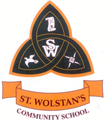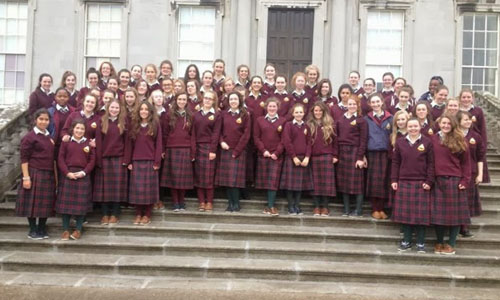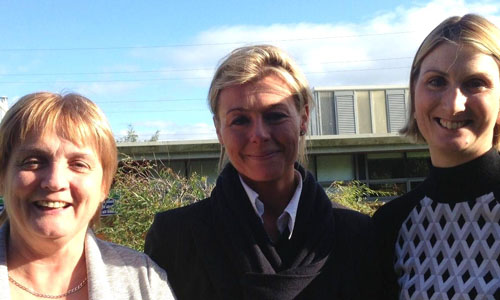 Location: Celbridge, County Kildare, Ireland
Location: Celbridge, County Kildare, Ireland
Teachers: Ms Noeleen Leahy (Main Coordinator), Ms Ceithre Guilfoyle, Ms Margaret Bennett
Student group: Transition Year (age 15-16 years)
School websites: www.stwolstans.ie www.stwolstansty.blogspot.com
We are an all girls Community School in County Kildare, Ireland. There are 750 students and 50 teachers.
1) What does the term “Global Citizenship” mean to you?
The students:
Being citizens not just of Ireland but of the world. As citizens, being aware of and caring about all people in our global community.
The teachers:
Global Citizenship means for me to realise that we are all connected in the world that we all share. Every action we undertake has an effect throughout the world and therefore we must learn to act responsibly to care for one another and the environment and build a community that we can all thrive in.
2) Why do you think it’s important for young people in Ireland to engage in an exchange programme like this?
The students:
To explore issues that young people are all interested in. To find out if the same issues are important to young people regardless of where they live.
The teachers:
To find out that young people all over the world share some of the same interests, concerns, hobbies, and passions.
3) What would you say directly to the young people in our schools network?
The students:
We look forward to working with and learning with you this year.
The teachers:
We are excited that our students have the opportunity to make global connections. We hope you are as excited as we are about what we will learn from each other.
Blog
Progress Report 1
ISSUES THEMES 1: GLOBALISATION, DEVELOPMENT, INEQUALITY, INJUSTICE, POWER, CONFLICT
Ms Leahy’s group
Step 1: Baseline Knowledge
1. How do you define each of the 6 key themes above?
Globalisation The way organisations develop international relations
Development It is the growth and improvement of the world. Improving quality of life by helping people to help themselves
Inequality Difference in size, degree, circumstances etc.
Injustice Not receiving justice (fair treatment) possibly because of discrimination, inequality, oppression or corruption
Power To be able to influence people. To be in control wisely
Conflict Disagreement/clash or dispute between people who have different ideas about issues in life
2. Can you give examples of how these are reflected in local issues (in your community and country)?
Globalisation We use and trade products from all around the world e.g. our coffee, clothes, cars
Development Simon Community helps the homeless and poverty. Govt helps to try and improve services for all our country
Inequality The recent Irish budget. No female priests in Catholic Church. Car insurance -Male/Female. Maternity / paternity leave
Injustice Treatment of refugees, abuses in Catholic Church
Power How well the country is doing – development
Conflict Clashes between religion / race / gender / age
3. Can you give examples of how these are reflected in global issues?
Globalisation Without globalisation there would be no global issues (!)
Development Aid is given to countries such as Lesotho to help them to help themselves eg, education projects
Inequality
Injustice Hillsborough ’96, Sweatshops, Unfair trade, Enslavement.
Power
Conflict War
Step 2: Researching it further
– to be updated –
Progress Report 2
ACTION THEMES 1: DEFINING GLOBAL CITIZENSHIP EDUCATION, DEVELOPMENT EDUCATION, SOCIAL JUSTICE EDUCATION
Download Ms Guilfoyle’s group Progress Report here: SAB_Progress_Report 2_Wolstans_MsGuilfoyles_Group




